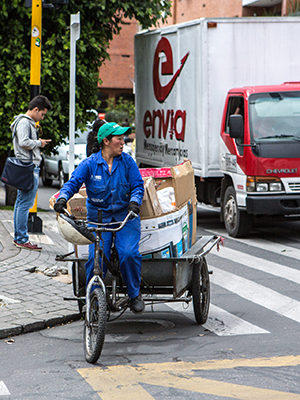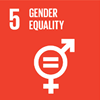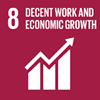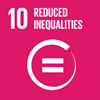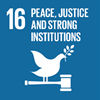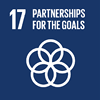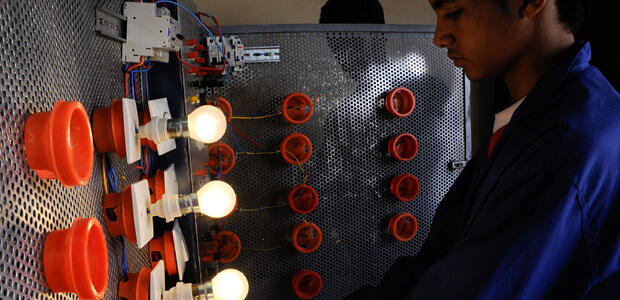Transforming economies, states, and societies
At its core, development is about the well-being of people. But it is also about creating societies which provide fundamental rights and just social political outcomes. Sustainable and inclusive development requires transformative changes across three fundamental areas: in the structures of economies, in the state, and institutions that govern social and market interactions and broader developmental processes, and in society itself. These transformations are central to the achievement of the United Nations’ 2030 Agenda for Sustainable Development and the Sustainable Development Goals (SDGs).
The 2019–23 UNU-WIDER work programme focuses on the interlinked development challenges of transforming economies, states, and societies and maps them against SDGs 5, 8, 10, 16, 17. By mobilizing research evidence for action through the ongoing processes in the UN and its member states, the institute continues to work with stakeholders to strengthen capacities for research, technical, and policy analysis, and facilitate exchange of experiences and knowledge towards bold and collaborative development solutions for countries and regions around the world.
Click on the table below to explore our current work or scroll down to search past projects.
15 active and previous projects
Filter by...
2012-13
Conference on inclusive growth in Africa - measurement, causes, and consequencesapid and sustained poverty reduction requires ‘inclusive growth’ that allows people to contribute to and benefit from the development process. Africa’s economic performance has improved considerably since the 1980s and early 1990s. Nevertheless, many...
2012-13
Experimental and non-experimental methods to study government performance: contributions and limitsIn recent years, field experiments using randomized trials have gained increasing popularity in the field of development economics. In particular, scholars have argued strongly for their use as the best means of identifying ‘what works’ in foreign...
2012-13
Africa's emerging middle-classSub-Saharan Africa currently is facing a range of demographic and socioeconomic shifts that hold important implications for both the region’s economic and political development. One of these shifts has been the emergence of a sizeable and dynamic...
2012-13
Reconciling Africa’s growth, poverty and inequality trends: growth and poverty project (GAPP)Despite decades of research and advances in data and methods, measuring poverty and reconciling this with patterns of economic growth remains a complex and contentious issue. UNU-WIDER’s Growth and Poverty Project (GAPP) re-examines Africa’s growth...
2012-13
Building state capability through Problem-Driven Iterative Adaptation (PDIA)As a sub-component of the Research and Communication on Foreign Aid (ReCom) programme, the PDIA project feeds into the themes: governance and fragility & social sectors. An integral part of development is the expansion of capability of the state to...
1998-99
Information technology - growth and employmentIt is a widely held opinion among policy-makers and social scientists that the so-called 'information revolution' is having a substantial impact on the world economy. It is often also presumed that this impact is beneficial to all those countries...
1998-99
New roles and functions for the UN and the Bretton Woods InstitutionsIn a world beset by the effects of the Great Depression and war, the 'Keynesian message' strongly inspired the post-war policy agenda and the structuring of the UN/Bretton Woods system. In contrast, an increasing gap has been emerging between the...
1998-99
EMU and its impact on Europe and the developing countriesThe single European currency, the euro, implies deep changes in the pattern of economic integration in Europe, as well as in the world financial system. These changes will have important consequences on developing countries as well. In Europe, the...
1998-99
Rising income inequality and poverty reduction - are they compatible?Over the last several years, the donor community has increasingly focused its efforts on poverty eradication. Meanwhile, income inequality appears to have been rising in many developed, developing and transitional countries. Economic theory explains...
1998-99
Transition from below - the role of the new private sectorMuch of the discussion about privatization in the former socialist economies has focused on the divesture of state-owned enterprises (SOEs). While this approach has been inspired by the belief that privatization will solve all production and...
1998-99
Underdevelopment, transition & reconstruction (UTR) in SSAThe development prospects in SSA are particularly problematic in those countries which adopted Soviet style planning in the 1970s, i.e. Angola, Congo, Eritrea, Ethiopia, Guinea, Guinea-Bissau, Mozambique, and Somalia. The policies of these countries...
1998-99
Development problems in natural resource-based growth modelsIn the top and bottom ranks of the GDP/c league, one finds countries which are completely devoid of natural resources, as well as others where the natural wealth of the country has played an important role in development. The evidence reviewed in the...
1998-99
Institutions, group behaviour and developmentInstitutions, such as firms, families, contracts, rules, regulations, values, and social norms, are fundamental for economic development. They influence both the level and the pace of economic growth, which can and frequently does trigger...
1998-99
Poverty, income distribution and well-being during the transitionSee publications for work connected to this project.
 Join the network
Join the network